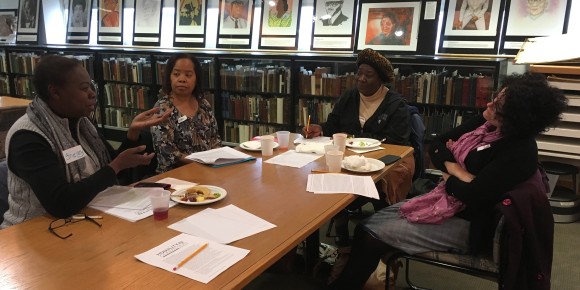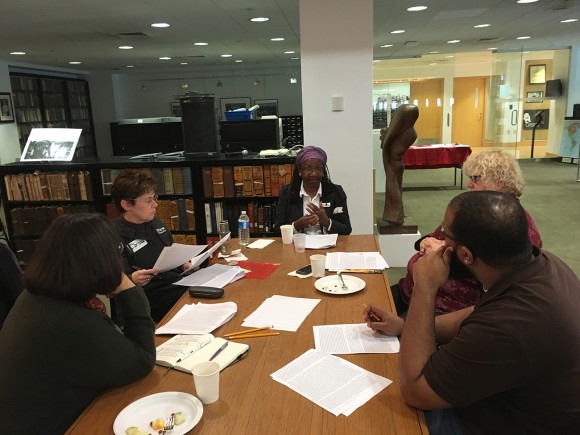The Encounters Series is facilitating important conversations in Connecticut. Programs in the Encounters Series bring University of Connecticut (UConn) humanities faculty into dialogue with community members about diverse issues like Gothic art, citizenship, and wealth inequality in the U.S. The Encounters Series is a collaboration between the UConn Humanities Institute and the Hartford Public Library, the Wadsworth Atheneum, and the Amistad Center for Art & Culture, creating space for conversations that draw on expertise at the university and have the potential to effect change.

The Encounters Series grew out of a desire to build connections between a land-grant university and its state, Brendan Kane of UConn explains. “We wanted to move beyond the kind of typical mode of interaction, which is the lecture or the panel,” Kane says. “I love lectures and panels, but we wanted to do things that were more active. We wanted to get UConn faculty more out into the world, making a research university that's state supported more accessible to the people in the communities that we serve.” With this in mind, Kane began exploring models of conflict resolution and public conversations.
The Encounters Series draws on methodologies of the traditional lecture model, as well as those of conflict resolution and public conversation projects. “On the one hand you have the lecture, which is about content. On the other hand you have conflict resolution and public conversation projects, which are really about process. Can we find the middle way that combined some of the best of both worlds? This is what the Encounters Series came out to be.”
Programs in the Encounters Series are open to the public and free, Kane explains. “We provide food because that’s what all of the community building conflict resolution people said: you have to bring people together around the table to break bread.” Drawing on methods of conflict resolution and community conversation programming, Kane and the Encounters team developed and tested a dialogue model.

Participants engage with some kind of “text,” be it a piece of music, an image, a writing, or something else. They sit around tables in small groups with a member of the Encounters team or a UConn faculty member. “You bring people in and have small table conversations around a particular topic and the text,” Kane explains. “You start from timed engagements where everybody has two minutes. You try to build the experience of actively participating and actively listening, then you go to more open conversation.” At the end in these sorts of events, tables typically share what they’ve discussed. This is where Encounters departs from traditional models, Kane continues. “Instead of just sharing out your table, we ask each table to think about some questions relating to where they are in terms of their collective thinking and wondering about the subject. What would they want to ask somebody who is an expert in that area?”
When each table is primed with questions, the Encounters team brings in an expert in the subject area from UConn or the community. “This is a way of getting [university and community] people’s content expertise into the world. They’ll stand up and be the experts,” Kane notes. “So the final session is a conversation Q and A based upon the conversations that people have had.” The model builds confidence among participants and facilitates a more equal exchange, Kane continues: “People who may otherwise feel uncomfortable asking a professor a question, they’ve now just had an hour and a half or more where they’ve engaged with the text… and listened to their neighbors. Their confidence has risen a lot. And then on the other hand, the confidence of the professors who stand up there is lowered, because they have to answer a Q and A session where they’ve had no control over determining the information on the day.”
The community partners, listed above, play co-equal roles in determining the subjects of the conversation and planning the event, as well as building connections with the community. Encounters is a fully collaborative and collective endeavor.
The Encounters Series is specifically designed to create institutionalized engagement opportunities for faculty that draw upon their research even if their work might not initially seem like a natural fit. “I’m a renaissance reformation historian. I do 16th and 17th century England and Ireland,” Kane explains. “One of the things I wanted to demonstrate is that I have expertise that is useful in a public conversation. It’s not only what you teach and research, it’s also the modes in which you think that can be incredibly useful, and, you know what, you’re going to learn something in return for that. That’s really one of the keys.”